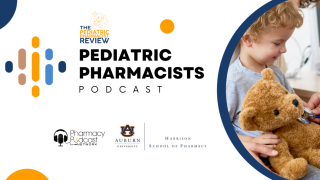Infants and Mothers Can Safely Share Hospital Rooms

A new report published by the JAMA provides evidence-based data on the management of mother-infant pairs in SARS-CoV-2 maternal infection.
In this cohort study of neonates born to mothers with SARS-CoV-2 infection in 6 maternity centers in Lombardy, Italy, mother-to-infant transmission of SARS-CoV-2 during protected rooming-in practice was rare, and no case was recorded when mothers remained asymptomatic or experienced the mild COVID-19 disease.
Published on December 7, 2020, these researchers commented: ‘We believe that SARS-CoV-2–infected mothers in good clinical condition and willing to take care of their babies should be encouraged to practice rooming-in and breastfeeding after being carefully instructed about the appropriate droplet and contact precautions.’
‘Based on our results, the risk of mother-to-infant transmission of SARS-CoV-2 during rooming-in seems to be unlikely, provided that infected mothers are not severely affected by COVID-19 and are educated to observe droplet and contact precautions when taking care of or breastfeeding their infants.’
To promote and support breastfeeding, the World Health Organization and the United Nations International Children's Emergency Fund developed the Baby-Friendly Hospital Initiative, in which they stated that rooming-in facilitates the establishment of breastfeeding and improves the health of mother and child.
Baby-friendly hospital initiative guidelines are currently being implemented worldwide, but, in the context of the ongoing COVID-19 pandemic, the optimal management of mother-infant pairs is yet to be determined.
To date, most authors have focused their attention on pre perinatal transmission of SARS-CoV-2.
Theoretically, SARS-CoV-2 may be transmitted to the fetus in utero through the placenta or during delivery through vaginal secretions. At least 6 neonates have been reported as having positive SARS-CoV-2 test results in the first 3-days of life, but a definitive diagnosis of vertical transmission was hindered primarily by the lag between birth and testing time or a negative result on retesting soon after birth.
These researchers added, ‘To our knowledge, the postnatal mother-to-infant transmission of SARS-CoV-2 has not been investigated yet, and no evidence supports the hypothesis that rooming-in and breastfeeding are risk factors for postnatal transmission of SARS-CoV-2 from infected women to their infants through droplets and direct contact.’
‘As precautionary measures, some scientific organizations have not encouraged rooming-in and breastfeeding in SARS-CoV-2–infected mothers, based on the assumption that mother-neonate separation and avoiding breastfeeding would minimize the risk of postnatal infant infection from maternal respiratory secretions.’
‘Nonetheless, this approach interferes with the mother-child relationship, as well as with the promotion of breastfeeding. Conversely, but also without evidence-based data, many other scientific organizations have encouraged rooming-in and breastfeeding even if mothers are infected with SARS-CoV-2, provided appropriate precautions to prevent its transmission through respiratory secretions are used.’
The main strength of this study is the number of neonates born to SARS-CoV-2 infected mothers enrolled, which represents the largest cohort reported to date. Furthermore, the prospective, multicenter study design and the application of rigorous methods contributed to the robustness of results.
Our study presents some limitations, such as the sample size was relatively small, and a proper control group was lacking, limiting the generalizability of our findings.
In a commentary published by the JAMA, several doctors said ‘that the study's findings align with those of the American Academy of Pediatrics' Section on Neonatal-Perinatal Medicine's COVID-19 perinatal registry of 4,000 newborns tested for COVID-19.’
CoronavirusToday publishes research-based COVID-19 pandemic news.
Our Trust Standards: Medical Advisory Committee
























